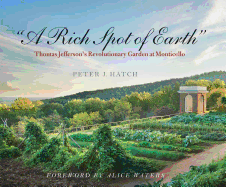Request this title !!!
Joy Larkcom, proclaimed by the Observer 'the queen of vegetable
growing', transformed the experience of growing vegetables in Britain -
and indeed can be said to have played a large part in changing the whole
of the British attitude to vegetables. Among many innovations she
introduced saladini and bags of mixed salad leaves, and popularized the
practice of cut-and-come-again.
All this, according to Joy, stemmed
from the Grand Vegetable Tour she undertook with her husband, Don, and
their two young children in the 1970s, travelling around Europe by
caravan. While Don did the cooking and taught the children, Joy bicycled
off to find out everything she could about how people were growing
vegetables and to collect seeds of rare varieties. The tour led to books
(famously Grow Your Own Vegetables) and a lifetime of garden writing.
The
articles published here, for the first time in book form, are selected
from that life's work. They describe not just her adventures on the
Grand Vegetable Tour - from a rollicking evening's dancing after husking
maize with French farmers to visiting ancient Portuguese gardens
excavated in sand dunes - but many other experiences, including life at
the small experimental market garden she set up in East Anglia on her
return; her travels in China and Japan in quest of oriental vegetables;
and the creation of a new 'retirement' vegetable garden at a farmhouse
on the west coast of Ireland.
Tuesday, August 28, 2012
Tuesday, August 7, 2012
"A Rich Spot of Earth": Thomas Jefferson's Revolutionary Garden at Monticello
Request this item !!!
Truly America's first Renaissance man, Thomas Jefferson not only greatly influenced the realms of government and architecture; his contributions to gardening and landscape design are also impressive. Monticello, his beloved home, stands as a monument to his horticultural passion and organizational genius. Hatch has been director of gardens and grounds there since 1977, and his treatise on the estate's garden history and contemporary significance is an elaborately detailed and thoroughly researched tribute to America's premier food-oriented gardener. Beginning with an extensive examination of Jefferson's structural plans and implementation strategies for Monticello's complex system of vegetable gardens, Hatch then chronicles his own lengthy effort at the helm of a vast restoration project that owes much of its success to the meticulous records Jefferson left behind. Along with providing plant profiles of the myriad vegetables cultivated there over the centuries, he also offers important insights into the arduous physical tasks involved in eighteenth-century gardening as well as Jefferson's prudent establishment of seed-saving techniques that continue to affect the marketplace. Elegantly produced and artfully augmented by stunning, evocative photographs of the estate and the bounty it produces, Hatch's homage establishes Jefferson as the clear forefather of modern organic and sustainable garden movements.(Reprinted with permission of Booklist, copyright 2012, American Library Association.)
Truly America's first Renaissance man, Thomas Jefferson not only greatly influenced the realms of government and architecture; his contributions to gardening and landscape design are also impressive. Monticello, his beloved home, stands as a monument to his horticultural passion and organizational genius. Hatch has been director of gardens and grounds there since 1977, and his treatise on the estate's garden history and contemporary significance is an elaborately detailed and thoroughly researched tribute to America's premier food-oriented gardener. Beginning with an extensive examination of Jefferson's structural plans and implementation strategies for Monticello's complex system of vegetable gardens, Hatch then chronicles his own lengthy effort at the helm of a vast restoration project that owes much of its success to the meticulous records Jefferson left behind. Along with providing plant profiles of the myriad vegetables cultivated there over the centuries, he also offers important insights into the arduous physical tasks involved in eighteenth-century gardening as well as Jefferson's prudent establishment of seed-saving techniques that continue to affect the marketplace. Elegantly produced and artfully augmented by stunning, evocative photographs of the estate and the bounty it produces, Hatch's homage establishes Jefferson as the clear forefather of modern organic and sustainable garden movements.(Reprinted with permission of Booklist, copyright 2012, American Library Association.)
Subscribe to:
Comments (Atom)


